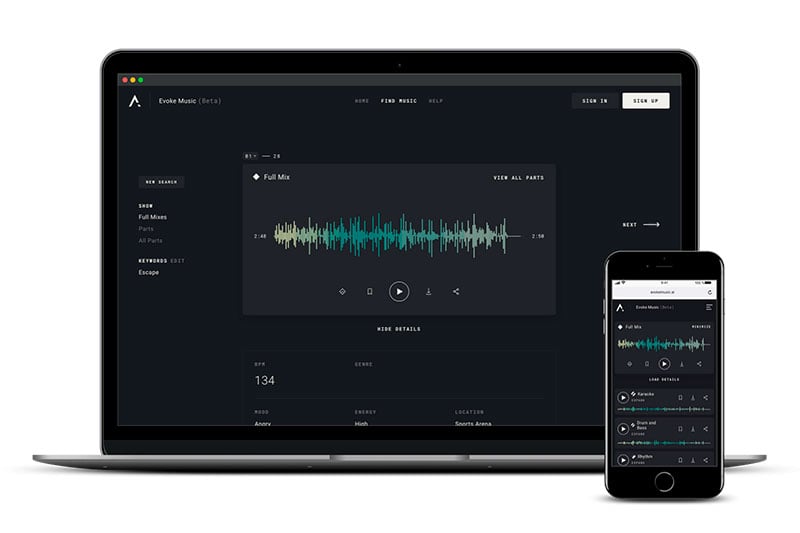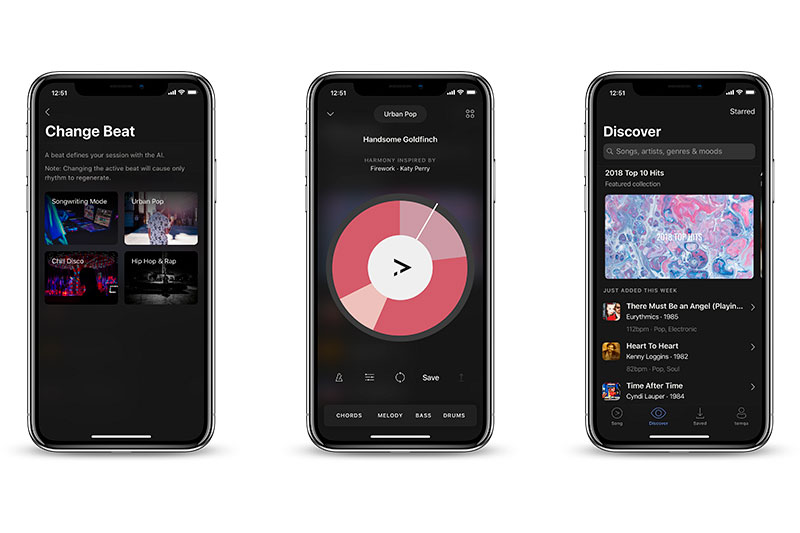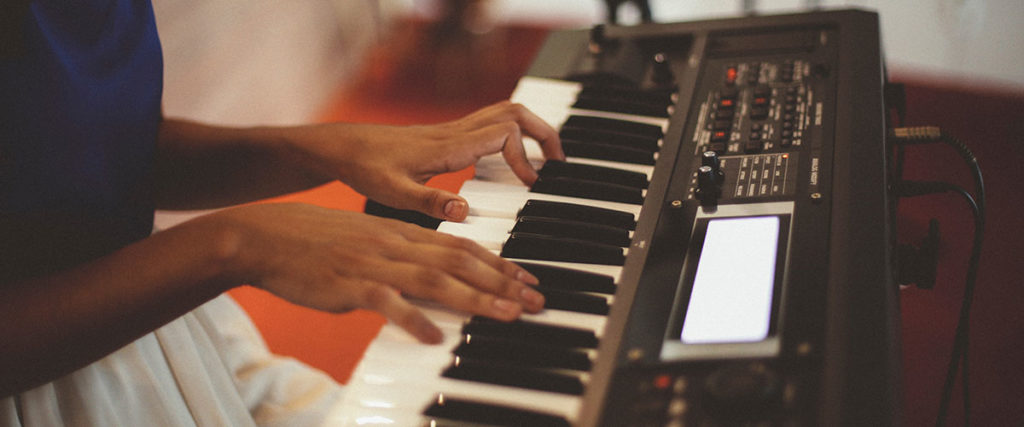Songwriting app Amadeus Code uses AI technology to help songwriters compose original music in real-time. Hive Life sat down with founder Jun Inoue to find out if computers can really think creatively.
In the age of artificial intelligence, few things have escaped the advancement of technology. But still, the question of how much machines can impact creative industries, infiltrating skills normally attributed to innately human endeavours and talent, is not one that many companies have managed to answer yet. Amadeus Code, an AI songwriting app, is trying its hand at it – and has caught the attention of TechCrunch, Fast Company and Rolling Stone along the way. Founded in Japan in 2017 by Jun Inoue, who graduated from Berkeley College of Music in 1997 before working at a prominent Japanese music production company, the program is an AI-powered songwriting assistant. As far as Jun sees it, technology offers a reliable source of inspiration to those who desperately need it. “I created Amadeus Code because, as a producer, I wanted to have a stable method of coming up with good songs,” he explains.

The major question standing before Amadeus Code is the issue of whether or not AI can really be capable of creative and original ‘thought?’ “That’s an excellent question,” says Jun. “Originality is quite difficult to actually define. AI itself obviously doesn’t have any emotions, but I think music should be valued by what was created and whether it has emotional or social value. Data is proving day by day that in every piece of creative work, there’s an element that has been borrowed from the past. As creators, we don’t have a lot of interest in the actual method and the tools we use,” he furthers. “We understand personal experience and unintended discovery to be a part of music. That’s why Amadeus Code actually has this baked into the algorithm with variables which the user can customise.”
Backed by a scanned database of popular music from the past five centuries, the algorithm allows the user to choose parameters such as length, drama, or era, then cobbles together a unique instrumental harmony, taking inspiration from existing songs with similar characteristics. The app is able to generate an infinite number of songs using the same parameters, helping users generate novel ideas quickly with just a tap of a button. Once generated, these songs can be exported as an audio file to be saved or further edited. “The user can adjust a range of melody parameters to customise the algorithm. The app will rearrange the body and present new ideas endlessly; the chances of having the same melody are astronomically low.” And, given the huge amount of music Jun sees in demand on the horizon, this method of writing original music, which provides a faster, simpler, and much more streamlined process, is something he predicts as highly necessary. “In the last five years, the video market was estimated to be worth about JPY 50 billion. With 5G, this will accelerate even further so to supply music to the market with only humans is going to be impossible.”
You might also like AI: Its Possibilities and Its Limits

To prove good music can be written by AI, Jun himself wrote the official song used to welcome the Pope to Japan last year via the app. Sharing the music writing credits with Amadeus Code on ‘Protect All Life – The Signs of Our Times,’ he saw it as an opportunity to prove the app’s potential. “Before working with Amadeus Code, I always believed that writing melodies was something like an epiphany from the heavens, solely for humans,” he reflects. “Past creators probably had a similar predicament to me when new technologies were invented and as history tells us, whenever there’s any technological advancement, creative people always struggle to incorporate these new technologies into their workflow.” But, for him, once he had leant on the app for help, he couldn’t look back. “The app served as a collaborating partner and I took elements that inspired me before coming up with the final song. It’s like collaborating with another artist. As an artist, you tend to think that what you’ve created is the best. By working with an app that is algorithmically trained to produce ‘good music,’ I was able to judge with an unbiased perspective.”
Since Amadeus Code’s inception, it has been used to write over 16,000 songs by over 8,700 users globally. As far as Jun is concerned, this is not a surprise. Next, he hopes to not only help musicians streamline their music generation processes but also create affordable, original music written solely by their AI technology. Having recently released an AI-generated music library Evoke Music that lets people download royalty-free music free of charge, users can now sort through their catalogue based on mood, genre and instrument. “There probably is a technical limit to AI, but the idea is that the tool shouldn’t hamper human creativity but accelerate it,” he says. “We shouldn’t judge the tools that are being used to produce beautiful music, but rather the music itself.”





